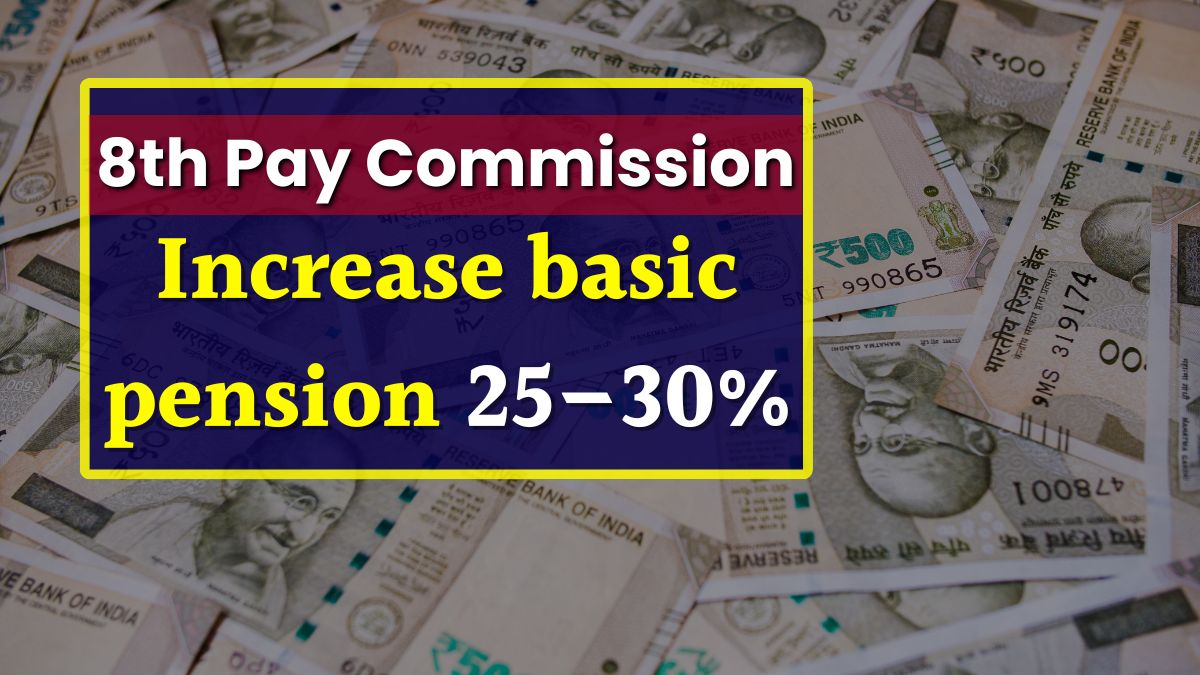According to fresh reports, the 8th Pay Commission may be implemented starting 1st January 2026—and if it happens, it could mean a significant salary and pension hike for millions of employees with grade pay of ₹2000, ₹2800, and ₹4200.
What’s the 8th Pay Commission, and Why Does It Matter?
If you’re not deep into government policy talk, here’s the simple version: every 10 years, the central government reviews and updates salary structures for its employees through a “Pay Commission.” The 7th Pay Commission came into effect in January 2016.
That means by January 2026, it’ll be 10 years—and chances are, we’re due for a major update.
But here’s the good news: preparations for the 8th Pay Commission are already underway, and internal talks between the Finance Ministry and DOPT have reportedly started. That’s a strong sign something big might be coming soon.
Who’s Likely to Benefit?
If you fall under grade pay 2000, 2800, or 4200, you could see not just a slight bump—but a life-improving salary increase. Let’s look at what this means in real numbers:
| Grade Pay | Current Basic Pay | Expected Basic Pay (Post-8th CPC) | Estimated Total Salary with DA & Others |
|---|---|---|---|
| ₹2000 | ₹21,700 | ₹28,210 to ₹30,000 | ₹40,000 to ₹45,000 |
| ₹2800 | ₹29,200 | ₹37,500 to ₹40,000 | ₹55,000 to ₹60,000 |
| ₹4200 | ₹35,400 | ₹47,000 to ₹50,000 | ₹70,000 to ₹75,000 |
Think about that. A real difference you can feel—more security, more flexibility, and more dignity in how you live.
What About Pensioners?
If you’re a retired government worker, we haven’t forgotten about you. The 8th Pay Commission could increase your basic pension by around 25–30%. Combine that with a possible increase in DA (Dearness Allowance), and you’re looking at a better monthly pension that actually keeps up with today’s rising costs.
For many, this isn’t just about money—it’s about peace of mind, respect, and finally getting what you’ve earned after years of service.
Has It Been Officially Confirmed Yet?
Here’s where things stand: there’s no official notification on the government portal yet. But that doesn’t mean nothing’s happening behind the scenes.
Employee unions are actively pushing for it, demanding that the central government set up the commission as early as possible. And inside sources say the conversation has already begun within top departments.
So, while we wait for that final announcement, the momentum is definitely building.
Why This Matters Now More Than Ever
With inflation rising and family needs growing, your current salary or pension might not be keeping up. And if you’ve felt like your efforts aren’t being fairly rewarded anymore—this update could change that.
You deserve a pay structure that reflects your contribution and supports your future. That’s why so many are watching the 8th Pay Commission news with hope in their hearts.
FAQs: 8th Pay Commission (2026)
Q1. When will the 8th Pay Commission be implemented?
It’s expected to take effect from 1st January 2026, but preparations may begin as early as 2025.
Q2. Who will benefit from it?
Central government employees, especially those in grade pay 2000, 2800, and 4200, and pensioners will benefit the most.
Q3. How much hike can employees expect?
Depending on your grade pay, your basic pay could increase by ₹6,000–₹15,000, and your total salary may rise by ₹15,000–₹25,000 or more.
